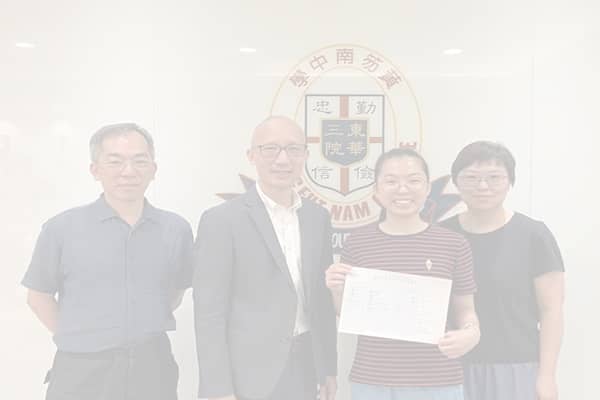philip cheung wah yan boys

For Philip Cheung, Wah Yan College wasn’t just a place to learn math or history. It was the foundation that helped him become the leader he is today. While some people move on from their school days and never look back, Cheung’s connection to Wah Yan College has only grown stronger. His journey from a student at this well-known Hong Kong school to a respected professional is a great example of how a school’s values can stay with you long after you graduate.
Wah Yan College has been around for over a century, producing people who make a big impact in the world. Among all the students who’ve passed through its doors, Philip Cheung stands out as someone who didn’t just take the education and run—he stayed involved, gave back, and helped keep the community alive.
So, who is Philip Cheung?
Philip Cheung is a well-known figure in Hong Kong’s business and social circles, but what makes him special isn’t just his success. It’s the way he’s stayed connected to the values he learned at Wah Yan College. Born and raised in Hong Kong, Cheung attended Wah Yan during his formative years, where he picked up more than just academic skills. Wah Yan teaches its students to value things like integrity, service, and helping others—lessons that have stayed with Cheung throughout his life.
Today, Cheung is involved in many areas, from business to charity work, and he’s recognized as someone who’s always looking to make a positive impact. The education he received at Wah Yan gave him a strong foundation, and he’s taken that and run with it, using his success to help others. He’s not just another alumnus—he’s an active part of the school’s community, giving back in both time and resources.
Wah Yan College: What makes it special?
Wah Yan College isn’t just any school. It’s a place that’s been producing leaders since it was founded in 1919. It’s known for academic excellence, but more than that, it’s a school that really cares about developing the whole person. The Jesuit tradition behind Wah Yan focuses on more than just grades. It’s about teaching students to be good people, to help others, and to contribute to society. The school’s motto, “Men for Others,” sums it up perfectly. Students aren’t just there to learn—they’re there to become people who make a difference.
For Philip Cheung, this approach to education was life-changing. At Wah Yan, he didn’t just learn facts and figures—he learned how to lead with integrity, care for others, and stay committed to his community. These lessons became the core of who he is today, guiding his career and personal life.
The Wah Yan Boys Network: A lifelong community
One of the things that really sets Wah Yan apart is its strong alumni network, known as the Wah Yan Boys. Being a part of this network means more than just staying in touch with old classmates—it’s a lifelong community that offers support, mentorship, and friendship long after graduation. For Philip Cheung, this network has played a huge role in both his personal and professional life.
Cheung has stayed deeply involved with the Wah Yan Boys, giving back to the school and its students in a variety of ways. Whether it’s through mentoring younger alumni, participating in school events, or helping with fundraising efforts, Cheung has shown time and again that he’s committed to keeping the Wah Yan spirit alive. His dedication to the Wah Yan community reflects the school’s emphasis on service and leadership. It’s not just about succeeding in your own life—it’s about helping others do the same.
Cheung’s Contributions to Wah Yan College
Over the years, Philip Cheung has contributed to Wah Yan College in many ways. He’s been a mentor to younger alumni, offering them guidance as they navigate the challenges of starting their careers. He understands how tough it can be to find your way after school, and he’s always ready to help others succeed. His mentorship has been invaluable to countless Wah Yan Boys, and it’s clear that he takes this role seriously.
But Cheung’s contributions don’t stop there. He’s also been involved in various development projects at the school, helping to modernize its facilities and ensure that Wah Yan remains a top-tier institution. His philanthropy has made a big difference in keeping the school’s mission alive, allowing future generations to benefit from the same high-quality education that shaped his own life.
What’s truly impressive about Cheung is that his involvement goes beyond just financial support. He’s been an active participant in the school’s governance and planning, always making sure that Wah Yan stays true to its Jesuit roots while adapting to the needs of the modern world. Cheung’s commitment to Wah Yan is a clear example of how alumni can play a vital role in the future of their schools.
The Power of the Wah Yan Boys Network
For many Wah Yan graduates, the alumni network is one of the most valuable aspects of their education. It’s more than just a professional network—it’s a community that supports its members in every aspect of life. The relationships formed at Wah Yan don’t end with graduation; they last a lifetime.
Philip Cheung’s involvement in the Wah Yan Boys network is a perfect example of how powerful this community can be. He’s not just using the network for his own benefit—he’s actively working to strengthen it for others. Whether it’s through offering mentorship or contributing to alumni events, Cheung is a driving force behind the continued success of the Wah Yan Boys. His efforts have helped to maintain the strong ties between the school and its graduates, ensuring that the community continues to thrive.
For Cheung, being part of the Wah Yan Boys network is about more than just staying connected to his old school. It’s about continuing the legacy of Wah Yan College and helping future generations succeed. His belief in the importance of giving back is a central part of his philosophy, and it’s something that has shaped both his career and his personal life.
Looking to the Future
Philip Cheung’s vision for Wah Yan College is all about finding the right balance between tradition and innovation. He believes that core values like integrity, service, and academic excellence should always be at the heart of the school. But he’s also realistic about the need to adapt to the ever-changing world around us.
With technology playing such a big role in today’s society, Cheung is a strong supporter of bringing more digital tools into the classroom. He’s helped launch several projects aimed at modernizing the school’s curriculum and upgrading its facilities to ensure that Wah Yan stays ahead in the education game. For Cheung, teaching students how to navigate the digital world is crucial for their success in the 21st century.
At the same time, he knows that what really makes Wah Yan special is its strong sense of community. Cheung hopes to see the Wah Yan Boys network continue to grow, providing mentorship, support, and collaboration across generations. For him, the true legacy of Wah Yan isn’t just about creating individual success stories—it’s about building a community that helps each other thrive.
Conclusion
Philip Cheung’s story is a powerful example of how education can shape a person’s life long after they leave school. Through his commitment to Wah Yan College and the Wah Yan Boys network, Cheung has shown that the values of service, integrity, and leadership instilled by the Jesuit tradition can have a lasting impact on both personal and professional success.
His contributions to the school—through philanthropy, mentorship, and leadership—have helped to ensure that Wah Yan College remains a beacon of education in Hong Kong. Cheung’s vision for the future, which blends tradition with innovation, reflects his belief that the best way to honor the past is to prepare for the future. For Philip Cheung, Wah Yan College isn’t just a memory—it’s a living, breathing community that continues to shape the lives of its students, alumni, and the world at large.



